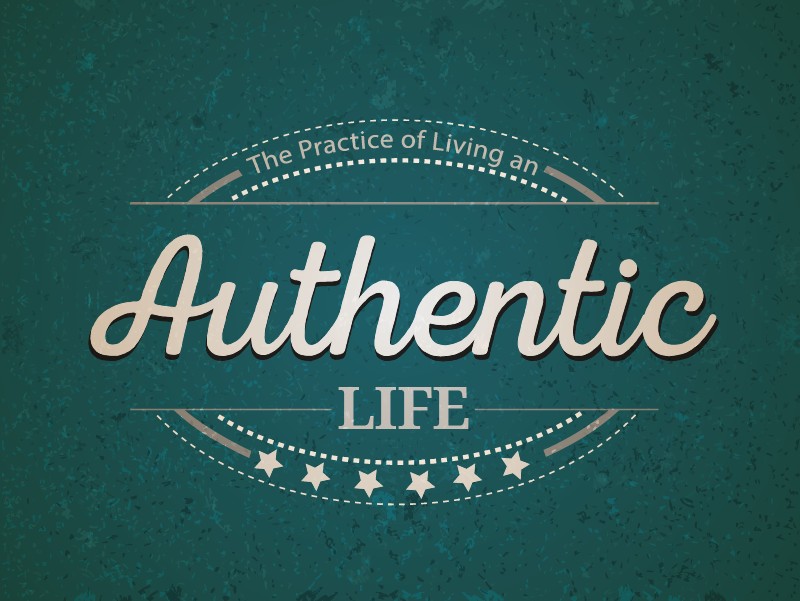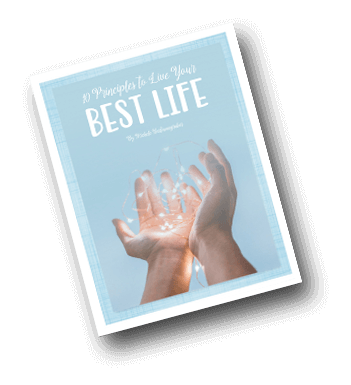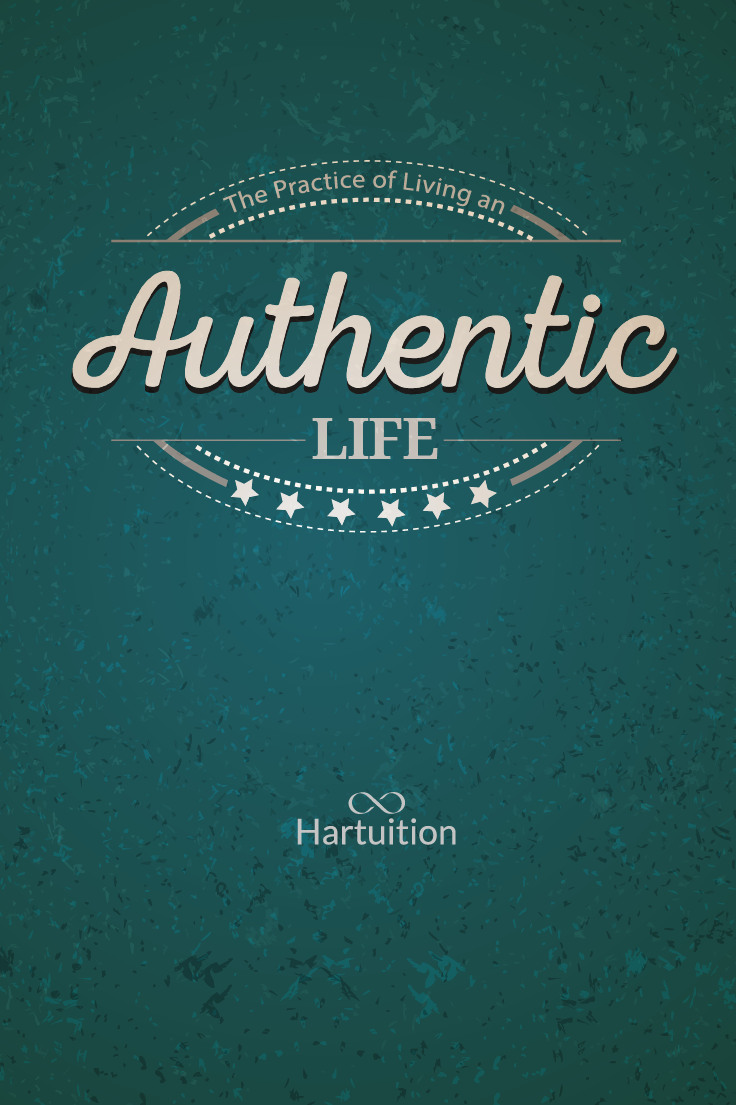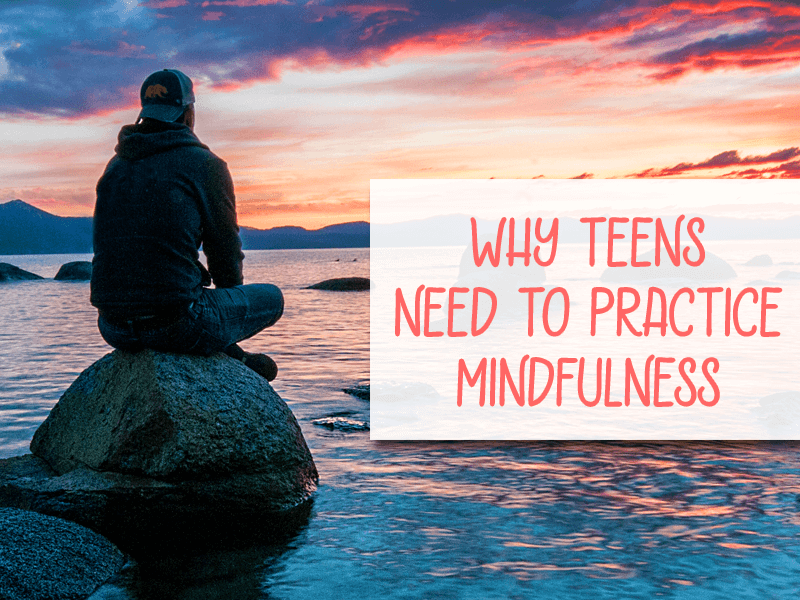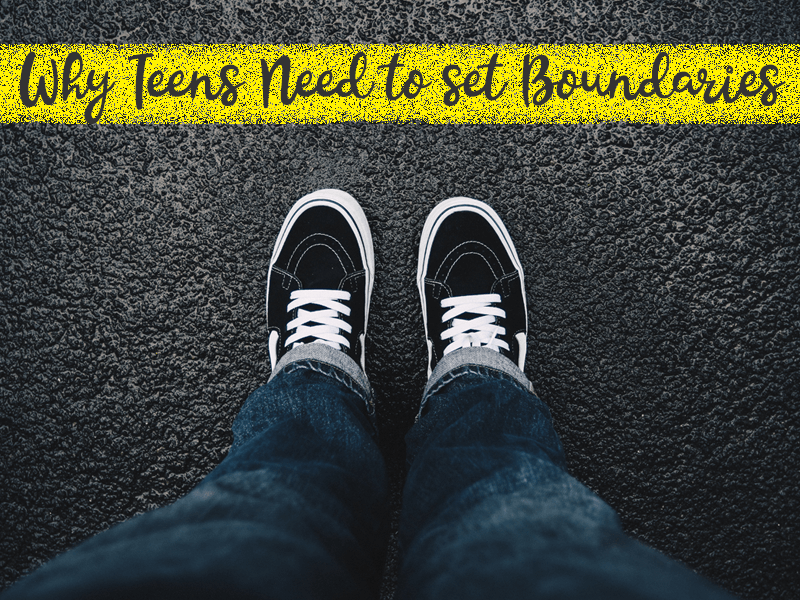“Often people attempt to live their lives backwards; they try to have more things, or more money, in order to do more of what they want so they will be happier. The way it actually works is reverse. You must be who you really are, then do what you really need to do, in order to have what you want.”
Margaret Young
I used to think that authentic was a quality used to describe some individuals and not others. People were either authentic or inauthentic. I have recently discovered that authenticity, like many ways of being, is a characteristic that all of us can possess. It’s a practice, an intentional choice of how we want to live every day. It’s the choice to show up, speak honestly and reveal our true selves.
The Challenge of Living an Authentic Life
Although authenticity is a quality all of us can aspire to possess, it’s not always easy to practice. In fact, it can be very challenging. When I’m feeling shame or self-doubt, I can easily slip out of authenticity and into being anybody other people need me to be in order to fit in.
The ability to choose authenticity is both empowering and draining. Empowering because being our true selves is something we value in ourselves and others. We can also feel drained because authenticity in a culture that dictates everything from how we’re supposed to look, to how we’re supposed to live is a huge endeavor. We’re highly influenced to “fit in” and “people please”. In spite of how challenging it can be to practice authenticity, it is truly the way to live a more connected, fulfilled and successful life.
Before you can begin your daily practice in authenticity, it’s important to understand its fundamental elements. According to Dr. Brené Brown, “Authenticity is the daily practice of letting go of who we think we’re supposed to be and embracing who we are.”
Setting the Intention to Live Authentically
Setting the intention to live authentically requires us to…
- Have the courage to be imperfect, to set boundaries, and to allow ourselves to be vulnerable.
- Show compassion by acknowledging that all of us can find the strength to endure our struggles.
- Foster the connection and sense of belonging that grows within us when we believe we are enough.
Authenticity requires us to interact with the world from a place of worthiness. It means developing the courage, compassion and connection to get up every day knowing that no matter what gets done and what doesn’t, I am enough. It’s also about acknowledging that I am imperfect, vulnerable and sometimes fearful, but I am also brave and worthy of love and belonging. Mindfully practicing authenticity during our greatest emotional challenges is how we incorporate grace, joy and gratitude into our lives.
Choosing authenticity is not an easy choice. e.e. cummings stated, “To be nobody but yourself in a world which is doing its best, night and day, to make you everybody but yourself, means to fight the hardest battle which any human being can fight, and never stop fighting.” Being our true selves is the most courageous battle we’ll ever fight.
Start Living Your Best Life!
Grab your free copy of our guide, “10 Principles to Live Your Best Life”, and learn about 10 essential principles you can practice daily to finally achieve everything you have set your sights on.
When we put our true selves out in the world, other people will be challenged with why and how we are changing. Those close to us may feel uneasy and uncertain about our changes. They may wonder about how our authenticity practice will affect them and our relationship with them. Some will be inspired by our new intention; some may feel we’ve changed too much and have pulled away from them.
Our Personal Struggles with Authenticity
In addition to the challenges we may encounter with others as we change, we may find a struggle within ourselves to embrace authenticity. Some of us may feel triggered by shame because we’re made to feel self-indulgent or self-focused. We may be concerned that our authenticity practice might be perceived as selfish or narcissistic. When I first started mindfully practicing authenticity, I was often tormented by a nagging voice in my head that questioned, “What if people say, ’Who do you think you are?’, What if I show that I’m imperfect and people don’t like what they see? , What if my family/friends/co-workers prefer the way I was before when I was doing whatever it would take to “fit in?”
I’ve also discovered that women and men feel challenged when their opinions, feelings and beliefs collide with our culture’s gender expectations. For example, research indicates that attributes we associate the most with being “feminine” are…thin, nice and modest. When we look at the attributes associated with masculinity those deemed most important for men were emotional control, primacy of work, control over women, and pursuit of status. Based on these norms, if men want to “fit in”, they need to stop feeling, start earning, and give up on meaningful connection.
Authenticity Takes Courage
We have to accept that being authentic isn’t always a safe and comfortable option. Sometimes being our true selves over striving to “fit in” is all about being brave enough to step out of our comfort zone. I must admit that I have stepped out of comfort on numerous occasions only to find myself getting rumbled around by the people and circumstances around me.
It’s easy for others to criticize those who risk “being real”; offering a challenging opinion, sharing a new creation, or trying a new endeavor that he or she hasn’t quite mastered. Judgment and cruelty are easy, cowardly, and rampant. These attacks have been intensified by social media which has provided a platform for individuals to criticize while hiding behind their anonymity.
Sometimes being our true selves over striving to “fit in” is all about being brave enough to step out of our comfort zone. Share on XAuthenticity requires courage to think, feel and act in spite of the outside hurtful criticisms, true or untrue. The problem is, if we really don’t care what other people think to the point we don’t feel hurt, we aren’t connecting which is a quality of authenticity. We must have the courage to be vulnerable and to tell our story while at the same time not be immune to criticism. This is the risk we have to take to experience connection.
I think we can all agree that practicing authenticity can be an intimidating choice. It requires risk-taking to put your true self out into the world. However, I think it’s even riskier to hold yourself and your gifts back from the world. Our unexpressed ideas, opinions, and contributions don’t just disappear. They will stir up and whittle away our worthiness. In fact, opting for safety rather than authenticity can lead to depression, anxiety, eating disorders, addiction, rage, blame, resentment, and tremendous grief.
An Authentic Life is Worth Some Discomfort
Jeopardizing who we are for the sake of what others might think simply isn’t worth it. I admit that authenticity will cause growing pains for us and those around us, but the end result will be the best gift we can provide others. When I released the struggle of trying to “fit in” and “people please”, I could devote my time, energy, attention, love, and connection to the people in my life that are most important. That’s the true benefit of living your life with authenticity!
Whenever I encounter a situation which makes me feel vulnerable, I set an intention to practice authenticity. I gather my emotional strength and courage and stand my ground no matter what response I receive and the end result. Being my authentic self in these situations will allow me to connect with the world from a source of sincerity and truth.
Over To You
What are choices you can make to live your life more authentically? I’d love to hear from you in the comments!

